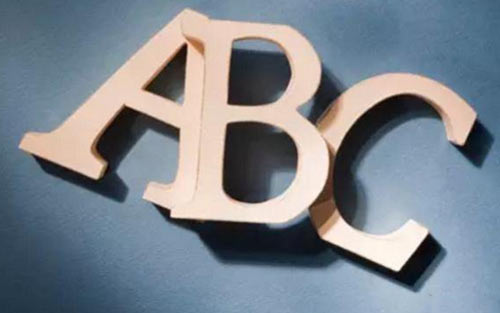情态动词,顾名思义,是用来表示说话人的语言、态度和情感。下面小编告诉你英语动词can的用法,大家一起来看看吧!
英语动词can的用法:
(1) 表示能力,意思为“能,会”。如:
I can sing this song in English. 我能用英语唱这首歌。
Can you tell me where the museum is? 你能告诉我博物馆在哪吗?
(2) 表示许可,意思是“可以”。如:
You can use my pen instead 你可以用我的笔。
Can I come in? 我可以进来吗?
(3) 表示推测,意为“可能,会”,主要用于否定句和疑问句中。如:
Can he be there too? 他也会在那儿吗?
He can’t have finished his work. 它不可能把工作做完了。
【说明】有时也用于肯定句中表示“有时”,或表示理论上的可能性。如:
She can be very unpleasant. 她有时很令人讨厌。
Even experienced teachers can make mistakes. 即使是有经验的教师也可能出错。

(4) 表示惊讶,通常用于疑问句、否定句和惊叹句中。如:
Can this be your reason? 这难道就是你的理由?
How can you say it like that? 你怎么能那样说话呢?
注意:从理论上说,could是can的过去式,但在某些场合中,could可用来代替can,表示现在的情况,只是语气较can委婉,此时,若用could来提问题,回答时,应该用can,而不用 could。如:
Could you answer me a question? 请回答我一个问题好吗?
Yes, I can. / No, I can’t. 好。/ 不行。
can和could的用法:
■ 表示能力:能,能够,会
He could swim when he was five. 他五岁时就会游泳了。
Can you drive a car? 你会开车吗?
—Yes, I can. 我会。
—No, I can’t. 我不会。

■ 表示推测:可能,会
I think the work can be completed ahead of time. 我认为这项工作能提前完成。
What can he mean? 他会是什么意思?
注:表示推测时,could不是过去式,只是语气更委婉;若是推测已发生的事或过去的情况,用can/could have加过去分词。如:
Today is Sunday. He can’t/couldn’t be at school. 今天是星期天。他不可能在学校里。
Mike can’t have found his car, for he came to work by bus this morning. 迈克一定还没有找回他的车,因为早上他是坐公共汽车来上班的。
■ 表示“有时也会”
It can be quite windy there, especially in spring. 那里有时容易刮风, 特别在春季。
■ 表示允许:可以 (口语中常代替may)
You can first lend me one book this time. 这次你可以先借给我一本书。
You can’t take the book out of the room. 你不可以将这本书拿出室外。
注意:
1. 表示允许别人做某事只能用can,不能用could。
2. can’t 和 mustn’t 一样,都可表示“不准,不允许”。
■ 表示请求:可以
Can I go swimming today, please, mum? 妈妈,我今天可以去游泳吗?
Could you tell me how I can get to the railway station? 请告诉我去火车站怎么走吗?
注意:could不是过去式,只是语气较can更委婉,注意在回答中不可用could。如:
—Could I have the television on? 我可以开电视看吗?
—Yes, you can. / No, you can’t. 可以。/ 不可以。
■can与be able to的比较
(1) be able to比can有更多的时态。如:
In the past 50 years or so, scientists have been able to “see” farther and farther into the sky. 在过去50年里,科学家们已经能够往天空看得更远。
(2) 在表示过去具体某次能够成功做成某事时,只能用was/were able to。如:
He worked very hard and was able to pass that examination. 他学习非常努力他以能够通过了那场考试。
情态动词can与could的用法归纳:
1. 表示能力
(1) 表示现在的能力,用can,如:
He can (=He is able to) swim. 他会游泳。
He can speak English well. 他英语能说得很好。
I can’t remember where I put it. 我记不得把它放在那儿了。
(2) 表示将来的能力,通常用will / shall be able to,如:
I shall be able to come tomorrow. 明天我能来。
One day people will be able to go to the moon on holiday. 总有一天人们可以到月球上去度假。
但是,若表示现在决定将来是否有能力做某事,则可用 can,如:
Can you come to the party tonight?你今晚能来参加我们的聚会吗?
(3) 表示过去的能力。
① 若泛指过去的能力,可用could,如:
I could run faster then. 我那时能跑得更快一些。
②若表示过去特定场合做某事的能力,则不能用could,而用was / were able to do sth.,或用 managed to do sth,或用 succeeded in doing sth 等。如:
He studied hard and was able to pass the exam. 他学习很努力,所以考试能及格。
= He studied hard and managed to pass the exam.
= He studied hard and succeeded in passing the exam.
误:She could jump into the sea before the ship was blown up. 船爆炸之前,她跳进了大海。
正:She was able to jump into the sea before the ship was blown up.
注:在下列情况,could也可表示过去特定的能力:
①在否定句中,could和was / were able to可通用。如:
I couldn’t / wasn’t able to see him before he left. 他离开之前我没有再见到他。
②could与see, hear, smell, taste, feel, understand等表示感知的动词连用时。如:
I can hear you easily from here. 我在这儿就能很轻易地听到你的话。
Then he spoke slowly, but I could not understand him. 接着他说得慢了,但是我听不懂他的话。
③could用在间接引语中时。如:
He said he could finish the work next week. 他说他下周能完成工作。
顺便说一下,be able to还可用于完成时, 如:
I’m sorry I haven’t been able to come earlier. 对不起,我没有能够来得更早一些。
He said he had not been able to answer your letter. 他说他一直没能给你回信。
2. 表示许可
(1) 对于现在或将来的许可,用can或could均可,但could 语气更委婉, 如:
Can / Could I smoke in here? 我可以在这儿吸烟吗?
You can't pick the ball up in football. 踢足球时不许可用手持球。
I could come tomorrow if you like. 如果你愿意,明天我可以来。
② 表示自己允许别人做某事时, 答语应用can或may,而不用 could。如:
--Could / Can I use your pen? 我可以借用你的钢笔吗?
误:-- Yes, of course you could. 当然可以。
正:--Yes, of course you can / may.
(2) 对于过去的许可。 若表示过去一般性允许用could;表示过去特定的允许,则不用 could,而需换成其它表达,如had permission, was / were allowed to。如:
When I lived at home, I could watch TV whenever I wanted to. 我住在家里时, 想什么时候看电视就什么时候看。(一般性允许)
I was allowed to see the film yesterday evening. 昨天晚上允许我去看了电影。(特定的允许)
can 和 could 表示允许的用法:
表示现在的允许时,若是请求别人允许自己做某事,两者均可用,但用could 语气更委婉;若是自己允许别人做某事,一般只用 can,而不用 could。如:
Can [Could] I come in? 我可以进来吗?
“Could [Can] I use your pen? ” “Yes, of course you can.” “我可以借用你的钢笔吗?”“当然可以。”(不能说Yes, you could.)
表示过去的允许时,若表示过去一般性允许(即表示某人随时都可以做某事),用could;若表示在过去某一特定情况下允许进行某一特定的活动,则不用 could。如:
When I lived at home, I could watch TV whenever I wanted to. 我住在家里时, 想什么时候看电影就可以什么时候看。(一般性允许)
I was allowed to see the film yesterday evening. 昨天晚上允许我去看了电影。(特定的允许,不能用 could)
与“英语动词can的用法”相关文章
赞(0)
12
12
分享:

